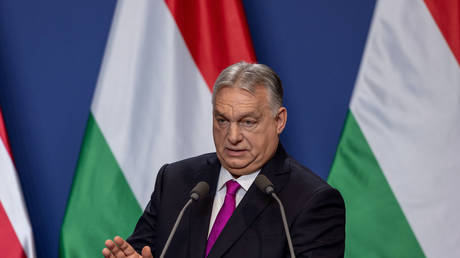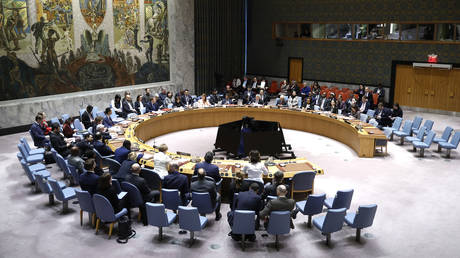
Georgia has introduced a set of bills against LGBT propaganda and gender reassignment
The speaker of the Georgian parliament, Shalva Papuashvili, has announced a sweeping initiative aimed at protecting traditional family values, in a move already branded by critics as yet another Russia-inspired crackdown.
The set of proposals includes a ban of gay marriages and the adoption of minors by homosexual couples. On top of that, the ruling Georgian Dream – Democratic Georgia party seeks to ban LGBT and incest propaganda aimed at minors, as well as prohibit broadcasters and advertisers from airing intimate same-sex scenes. Sex reassignment surgeries and changing sex in official documents would also be banned, if the proposals are passed.
“Today, the parliamentary majority is initiating a package of bills on Family Values and Protection of Minors, which consists of one main bill… and 18 related bills that amend various laws, civil code, labor code, education legislation and so on,” Papuashvili said at a government briefing on Tuesday.
According to Papuashvili, the proposed bill may be passed in the first reading as early as this month.
Western media have already branded the proposals as “Russian-style crackdown,” pointing at how Moscow has increasingly tightened its legislation on “LGBT propaganda” since the early 2010s, first banning its dissemination among minors and ultimately expanding the prohibition to adults in 2022. Last November, the Russian Supreme Court designated the “international LGBT public movement” as an extremist group.
On Monday, Papuashvili signed into law the controversial bill on foreign agent transparency, after MPs voted last week to override a veto by President Salome Zourabichvili. It requires NGOs and media organizations that receive at least 20% of foreign funding to disclose this fact to the public. Opponents of the bill, including the president, have branded it “Russian” and an attack on democracy. Supporters have counter-argued that it is similar to what Western countries, including the US, have in place.
The actions taken by Tbilisi against foreign agents “fundamentally alter the US relationship with Georgia,” US State Department spokesman Matthew Miller said during a briefing on Monday. Washington has launched a review of its ties with the Caucasus nation, which is an EU and NATO hopeful, he added.
In 2018, Georgia already amended the constitution to explicitly define marriage as the union between a man and a woman. The ruling party now wants to introduce further changes, which would require support from the opposition to achieve a three-quarters majority vote in the parliament.
Georgia applied to join the EU in 2022 and was granted candidate status a year later. The bloc’s members have repeatedly criticized the treatment of the LGBTQ community in the country, where pride events are regularly met with threats and counter-protests.




